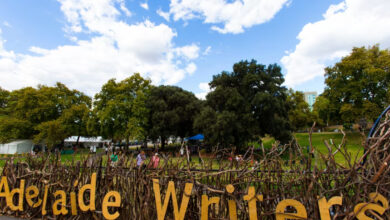
BALLARAT, Australia (Reuters) – On the day Cardinal George Pell, one of the highest ranking Vatican officials, was publicly revealed as a convicted child sex offender, his old high school in an Australian goldfields town physically scraped his name from one of its buildings.
A thick black-taped line was also put through his once-revered name on a timber board of ordained alumni in the front offices of St Patrick’s College in Ballarat, Pell’s hometown in the state of Victoria. It is the fifth name on the board to be taped over, in a diocese ripped apart – like others before it in the United States, Ireland and elsewhere – by an abuse scandal.
“We believe the decision to revoke those various honors is the appropriate course of action for the best interests of the boys who walk through the front gates of St Patrick’s College each and every day,” principal John Crowley told Reuters on Wednesday, a day after Pell’s conviction was made public.
A jury in the County Court of Victoria in Melbourne found Pell guilty on Dec. 11 of five offenses against two 13-year-old choir boys, committed when he was the Roman Catholic archbishop of the city in the 1990s. But a court-imposed suppression order banning reporting of the trial was only lifted on Tuesday, giving Pell’s hometown its first opportunity to respond.
“As a church we – and I say we because I’m part of the church – need to do more,” said Crowley. “We are well and truly behind the pack here.”
Pell’s name looms large in Ballarat, a town of 100,000 people 120 km (75 miles) west of Melbourne.
His father was the local publican, and the son proved himself to be a dogged defender of the faith as a young priest in the gold district, one of the country’s biggest Catholic dioceses.
PAPAL ADVISER
The physically intimidating former athlete, measuring more than 190cm (6 foot 3 inches) tall, would later cut a path all the way to Rome, where he became the Vatican’s economy minister and one of the pope’s top advisers.
But a government-ordered inquiry in 2013 started to expose wide-ranging allegations of clerical child abuse and cover-up, with Ballarat at its epicenter. Pell testified at the hearings, mostly about his knowledge of complaints in the 1970s and 80s. He was not named as an alleged perpetrator at the inquiry.
Child abuse survivor Paul Auchettl said the town’s strong Catholic ties made it difficult to speak out, even as some of its residents succumbed to suicide, self-harm and isolation.
“I was being courted by priests because families used to offer their oldest boy to the priesthood,” said Auchettl.
“If you went into the church it was the best thing ever that could happen and it gave your family elevated status – it was what everybody was hoping for actually.”
The 77-year-old Pell was back in court on Wednesday for his sentence plea hearing, where his bail was revoked and he was taken into custody ahead of his sentencing on March 13.
Trump talks up North Korean ‘potential’ in tweet
He has maintained his innocence throughout proceedings, and his lawyers have lodged an appeal against his conviction.
While Pell’s conviction relates to abuse occurring in Melbourne, residents in Ballarat rejuvenated a campaign of tying bright ribbons on the cathedral in his hometown after the jury’s findings were made public.
Campaigner Maureen Hatcher, who said she started the colorful ribbon campaign several years ago in defiance of the secrecy cloaking the town and its victims, said the once intense opposition to people like herself was finally falling away.
“It’s quite a conservative town and a very Catholic town; things are changing obviously with current news,” said Hatcher. “There’s been a big black cloud over this city for many decades … and I think every day now there is a little bit more sunshine in the town.”
Reporting by Jonathan Barrett in BALLARAT; Editing by Alex Richardson




